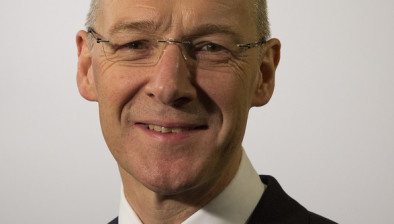Scottish Government publishes views on European Structural Fund replacement
The Scottish Government has published the results of the consultation on the replacement for European Structural and Investment Funds (ESIF).

Ivan McKee, minister for trade, investment and innovation
Scotland has been a major beneficiary of the ESIF since 1975 with an estimated investment of £4 billion between 1975 and 2006, and a further £820 million for the period 2007-2013.
Under the current 2014-2020 programme, Scotland has benefited from over £780m through the European Regional Development Fund (ERDF) and the European Social Fund (ESF).
The Funds have played a vital role in reducing inequalities across different parts of the country for over 40 years through significant investment in job creation and a sustainable and healthy economy and environment. They have also provided substantial investment for key Scottish Government policies such as Modern Apprenticeships and the Low Carbon Infrastructure Transition Programme.
Now that the UK has left the European Union (EU) it will no longer receive ESIF. ESIF are seen by many as a valuable part of Scotland’s regional development policy, and their loss could have a significant impact upon job creation and business activity.
The UK Government has committed to rolling out a successor programme to the ESIF, called the UK Shared Prosperity Fund (UKSPF). At the time of reporting, limited information about this programme has been released, including on the scale, objectives or allocation of funding.
Scottish Ministers have made clear their wish to be actively engaged in the design of the UKSPF, and have set out five “red lines” on the replacement funding.
These are that:
- Scotland should not lose out financially compared with the current level of funding that it receives from the EU.
- The devolution settlement must be respected and the UK Government must make no attempt to take back powers that the Scottish Government has rightfully executed to date.
- The Scottish Government must be an equal partner in the development of the UKSPF.
- The current level of flexibility in the allocation of funds should not be reduced.
- The replacement scheme should be operational in time to be implemented in early 2021, so that our stakeholders do not suffer difficulties as a result of funding gaps.
It is against this backdrop that Scottish Ministers committed to undertaking a consultation on a successor programme to the ESIF. The consultation sought views on how any replacement funding could best meet the needs of citizens, businesses and communities in Scotland.
The findings will be used by Scottish Ministers to inform ongoing dialogue with the UK Government about the UKSPF, and to help shape and inform the design and operation of any future programme in Scotland.
Commenting on the results of the consultation, Ivan McKee, minister for trade, investment and innovation, said: “The European Structural and Investment funds were a prime example of the benefit of European Union membership, having delivered more than £5.6 billion of investment into Scotland’s communities since 1975.
“Given the lack of detail from the UK Government on their proposed successor – the UK Shared Prosperity Fund - the Scottish Government launched this consultation in February. We wanted to gather the views of citizens, businesses, and communities to find out how people saw the funds, and what they wanted a replacement to look like.
“The analysis published today will guide the Scottish Government’s response to any proposals brought forward by the UK Government – ensuring the voices of Scotland’s communities and regions are heard.
“As Scotland begins to move towards recovery following the coronavirus (COVID-19) pandemic, regional and local development will become even more important to ensure everyone in Scotland has the opportunity to prosper and live in the kind of inclusive and sustainable society we all want to see.”










